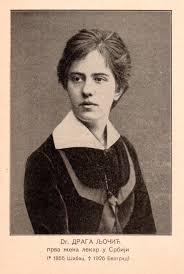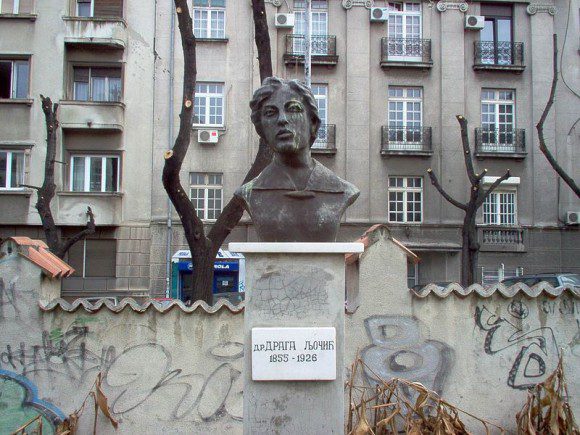Bojana Cokić
Zajecar, Serbia

Draga Ljočić-Milošević, a feminist activist and the first female Serbian physician, dedicated her life to advancing women’s rights. She helped facilitate the emancipation of women in conservative Serbia and campaigned for gender equality in the field of medicine. The vast majority of Serbian women had few educational opportunities during the second half of the nineteenth century. She was one of only a handful of Serbian women to pursue higher education in Europe. Ljočić-Milošević was not only the first female doctor in Serbia, but also the first Serbian woman to study medicine. Her role as a trailblazer extended beyond her medical pursuits. She led humanitarian efforts by advocating for gender equality and participating in Serbia’s liberation wars from 1876 to 1918.
Ljočić-Milošević was born on February 22, 1855, in Šabac, Serbia. She attended primary school in Šabac and after studying the natural sciences and mathematics in high school, she decided to set out abroad. She enrolled at the Medical Faculty in Zurich in 1872, successfully completed her medical studies in 1879, and went on to become the first female doctor in Serbia.

During the Serbo-Bulgarian War of 1885, Ljočić-Milošević worked as a physician in three Belgrade hospitals—the General State Hospital, the Infectious Hospital, and the Hospital for the Wounded. During the Balkan Wars of 1912 and 1913, she worked at the Nikola Spasić, municipal clinics for the poor as well as at a tobacco factory. She also treated patients during World War I.
Ljočić-Milošević’s humanitarian contributions were extensive. In addition to founding the Society of Belgrade, Women Doctors and serving as its first president, Ljočić-Milošević helped construct the Dr. Inglis Elze hospital in Dedinje. She volunteered her services at orphanages, where she treated children and workers at no cost. As a connoisseur of foreign languages, She translated the Russian book Growing Small Children.
Only in the new state, the Kingdom of Serbs, Croats and Slovenes, were Ljočić-Milošević’s credentials as a physician recognized. Until then she had worked in places lower than her profession. She was awarded numerous medals for her bravery during Serbia’s liberation wars. She died on November 5, 1926, at age 71. She is buried at the New Cemetery in Belgrade. A street in Belgrade is named in her honor.
References
- Stanojevic V. Serbian medical society and its members during Serbian Liberation wars 1876-1878. and 1912-1918. Belgrade: Serbian Medical Society Memorial. 1972. p. 114-24. (Serbian),
- Gavrilovic V. Female doctors in wars 1876. 1945 on Yugoslavian ground. Belgrade: Scientific Society for Yugoslavian Health Education; 1976. p. 15-30. (Serbian),
- Subotic MV. Memorial to doctors and medics who were killed and deceased during the wars between 1912-1918. regular, correspondent, honorary members and founders, benefactors and donors 1872–1922. Belgrade; Serbian Medical Society; 1922. (Serbian),
- Lazovic J, Sujic R. Women Doctors In the Serbian Sanitary Service During the Balkan Wars. Acta Med Hist Adriat 2007; 5(1): 71-82. (Serbian),
- Yugoslavian Archive 39, f-16. (Serbian). BOJANA COKIĆ, MD, is a pediatrician specialized in clinical genetics at the Children’s Hospital in Zajecar, Serbia, where she was Head of the Department Pediatrics from 1986 to 2004 and now Head of the Neonatology Service since 2007. In 1992 she introduced a registry for congenital anomalies and in 2009 she established the Association for Downs Syndrome in Zajecar.
BOJANA COKIĆ, MD, is a pediatrician specialized in clinical genetics at the Children’s Hispital in Zajecar, Serbia where she was Head of the Department of Pediatrics from 1986 to 2004 and now Head of the Neonatology Service since 2007. In 1992 she introduced a registry for congenital anomalies and in 2009 she established the Association for Downs Syndrome in Zajecar.
Highlighted in Frontispiece Volume 16, Issue 2 – Spring 2024

Leave a Reply